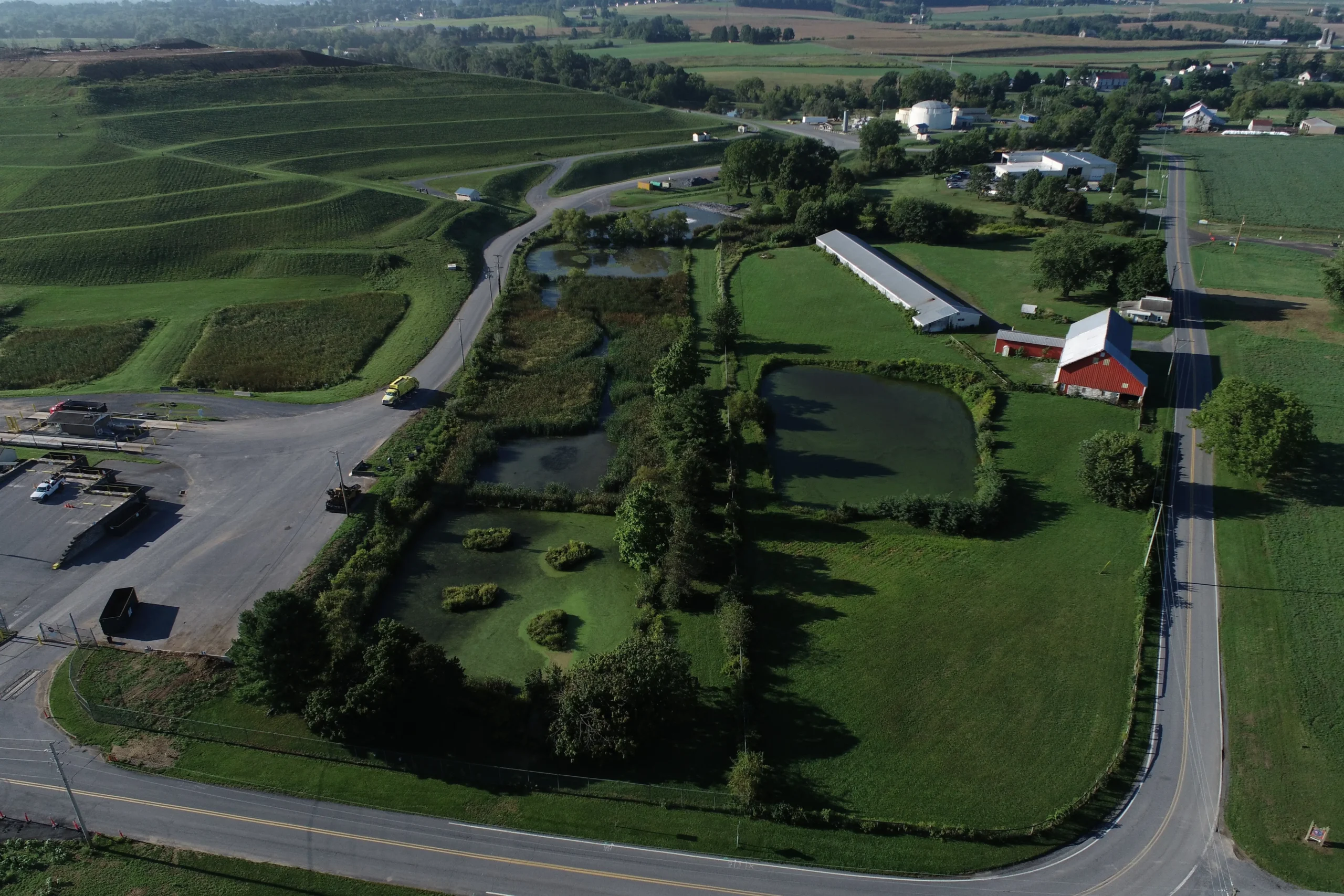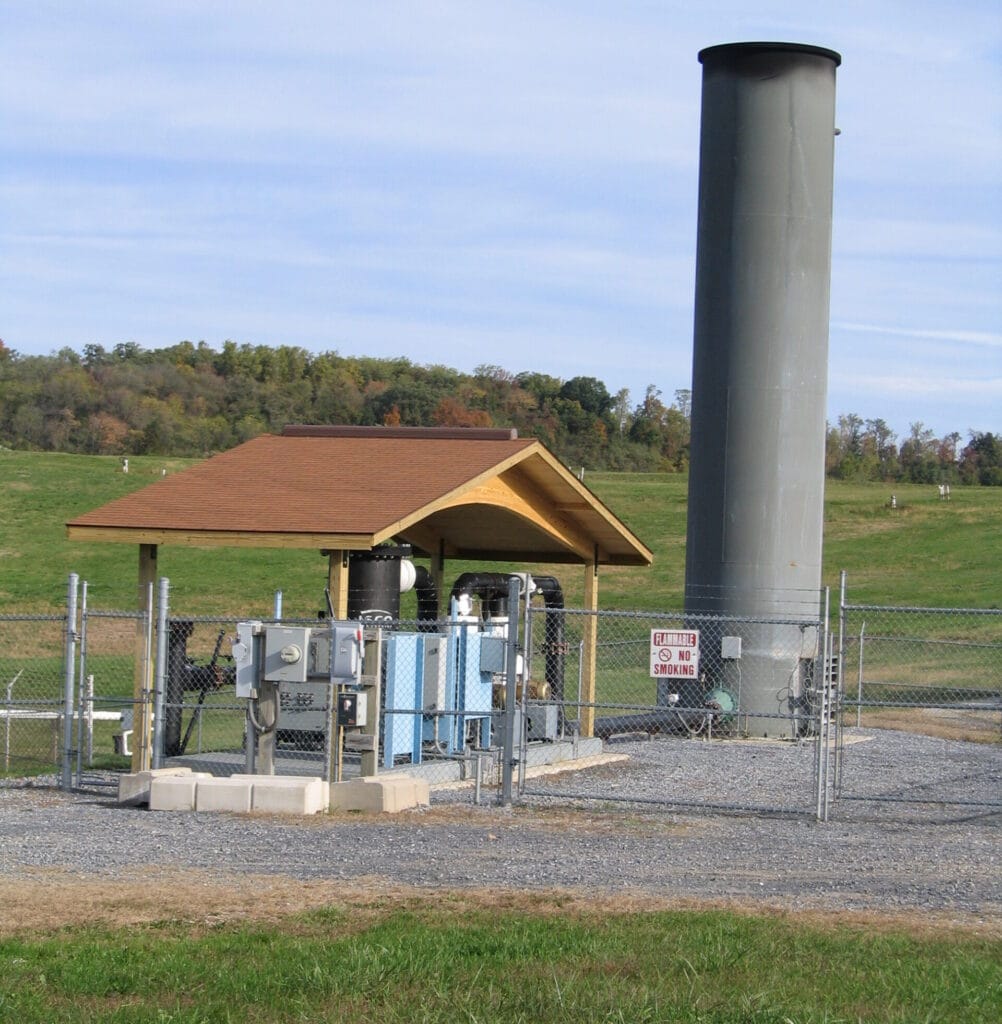Greater Lebanon Landfill Gas Project

Introduction
The Greater Lebanon Landfill Gas project in Lebanon, Pennsylvania, is a leading example of how innovative waste management can deliver real climate, community, and economic benefits. By capturing methane from municipal solid waste, converting it into renewable electricity, and generating verified carbon credits, this project demonstrates the power of local action in the global fight against climate change.
Table of Contents
Project Overview
Operated by the Greater Lebanon Refuse Authority (GLRA) in partnership with NextEra Energy, the landfill gas-to-energy facility extracts methane-rich gas from both active and inactive landfill areas. This gas, which would otherwise escape into the atmosphere as a potent greenhouse gas, is burned in internal combustion engines to produce electricity. The resulting power is sold to Met-Ed utilities, and the GLRA receives royalty payments that help fund local services and improvements.

Methane Capture and Environmental Impact
Methane is a greenhouse gas over 25 times more potent than carbon dioxide. Landfills are a major source of methane emissions, making capture and destruction of this gas critical for climate action. The Greater Lebanon project vacuums gas from the landfill, eliminating dangerous methane emissions and recycling a by-product of waste into a valuable energy resource. The system is designed to optimize gas collection, with an enclosed flare as a backup to ensure continuous destruction of methane even when generators are offline.
Over the project’s lifetime, more than 250,000 tonnes of CO₂-equivalent emissions have been avoided. This not only helps fight global warming but also improves local air quality by destroying hazardous air pollutants (HAPs) and volatile organic compounds (VOCs) that can harm human health.
Renewable Energy Generation
The GLRA’s landfill gas-to-energy facility generates affordable, renewable electricity for the local grid. The project’s two 1.6 MW generators supply enough power for thousands of homes, reducing reliance on fossil fuels and supporting Pennsylvania’s transition to cleaner energy sources. The Renewable Energy Education Center on-site demonstrates the cost-effectiveness and scalability of landfill gas-to-energy technology to students, teachers, and community groups.
Carbon Credits and Verified Impact
In addition to electricity generation, the project is eligible for the creation and sale of Verified Carbon Units (VCUs) through the Verified Carbon Standard (VCS). By capturing and destroying methane, the project avoids future streams of greenhouse gas emissions, making it a valuable source of high-quality carbon credits for organizations seeking to offset their own emissions. The GLRA partners with third-party brokers like 3Degrees, Inc. to sell these credits, ensuring transparency and accountability.
Community and Economic Benefits
The project serves the 26,000-person community of Lebanon, improving area health conditions by reducing air pollution and odors. Revenue from electricity sales and carbon credits supports local infrastructure, education, and public services. The initiative also creates jobs in engineering, facility management, and environmental monitoring, strengthening the local economy.
Transparency, Verification, and Best Practices
The Greater Lebanon Landfill Gas project is monitored and verified according to international standards, including ISO 14064 and the VCS. Regular audits and transparent reporting ensure that emission reductions are real, additional, and permanent. The project’s design includes robust safeguards to prevent negative environmental or social impacts, and its success has made it a model for landfill gas management across the United States.
Conclusion
The Greater Lebanon Landfill Gas project exemplifies how local waste management can deliver global climate benefits. By capturing methane, generating renewable energy, and producing verified carbon credits, the project supports cleaner air, healthier communities, and a more sustainable future. As more regions look to replicate this model, Greater Lebanon stands as a beacon of innovation and impact in climate action.
Take action today, calculate your emissions using Coffset’s carbon footprint calculator and contribute to projects that make a real difference!
References:
https://3degreesinc.com/projects/greater-lebanon-refuse-authority-landfill-gas-collection-and-combustion-project/
https://www.goglra.org/2154/Landfill-Gas-to-Energy-Facility
https://sustainability.yale.edu/priorities-progress/climate-action/carbon-offsets/verified-offset-projects
https://files.hedera.com/VCS-Verification-Report_GLRA_Final_V1-1_041718.pdf
https://lebanonnh.gov/1573/Landfill-Gas-to-Energy-Project
https://lebtown.com/2024/12/19/trash-talk-a-birds-eye-view-of-the-greater-lebanon-refuse-authority/